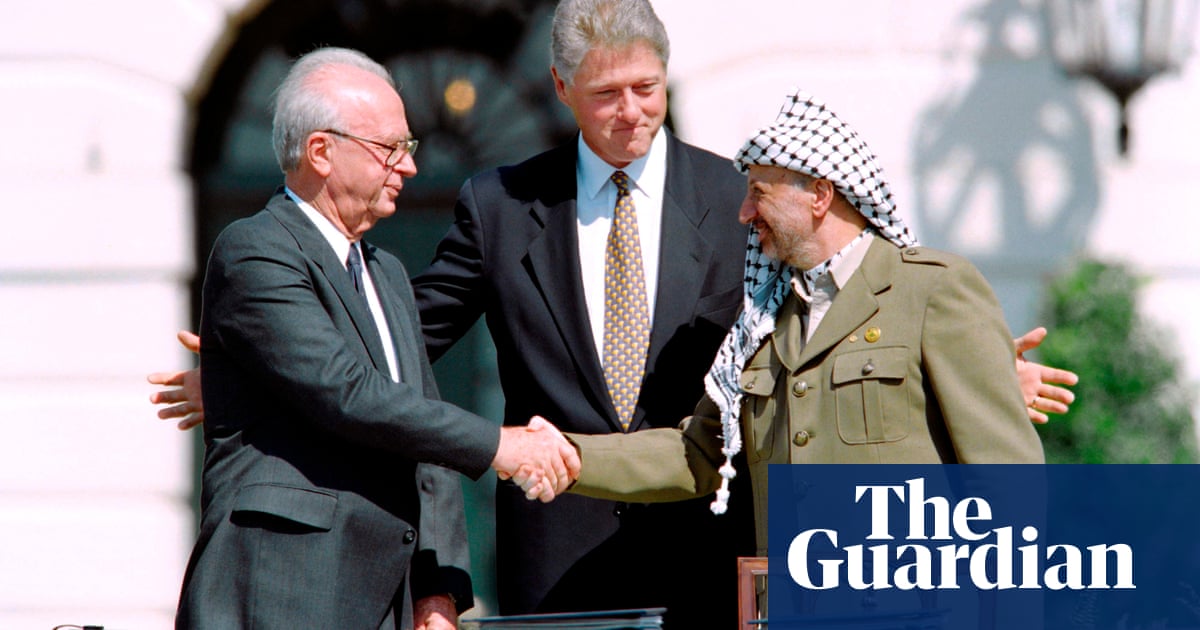
The latest round of Israeli-Palestinian violence highlighted shifts in how the US media reports on the topic and how Americans talk about it. These shifts are important, even if they are not yet likely to significantly shape US policy.
Media coverage of the Israeli-Palestinian conflict has shifted significantly in the last 10 to 15 years. However, it is important to understand that the starting point was a profoundly pro-Israel viewpoint. The spectrum of perspectives and information reported by US media and allowed in mainstream conversations has expanded. Twenty years ago, the spectrum of mainstream reporting, academic discussions and conversations within the foreign policy world was very limited. At one end of the spectrum were voices that saw the conflict primarily through an Israeli lens, while also expressing some concern for the Palestinians — and mostly blaming Palestinians for their problems. The other end of the spectrum was vehemently pro-Israel, framing the Palestinians as liars, whiners and terrorists. The center point of that spectrum was seen as the balanced position. Anyone who expressed opinions beyond that spectrum was seen as extreme or fringe.
Today, one end of the spectrum has expanded significantly. The spectrum now includes ideas that were previously fringe, such as giving equal credence to Palestinian and Israeli voices, blaming Israel for Palestinian deaths, recognizing that there is a huge disparity in the death toll when Israel and Hamas go to war, and so forth. These ideas were largely unacceptable in mainstream reporting 20 years ago, but now they appear frequently in mainstream media outlets. The other end of the spectrum remains extremely pro-Israel. But the center point of the spectrum has shifted as the spectrum expanded, altering mainstream views of the conflict.
This shift is noticeable in the reporting of many media outlets. It also is clear in opinion polling, social media, casual conversations, and think tank content. In Congress, progressive and some moderate Democrats have publicly criticized Israel for bombarding Gaza and supported legislation to put conditions on US aid. These shifts reinforce each other; for example, when lawmakers raise concerns about Palestinians’ human rights, that is newsworthy, which leads to media outlets highlighting the issue.
Multiple factors are driving this shift. Changes in the media landscape have eroded the power of a few outlets to determine what information and perspectives Americans received. The expansion of Middle East-based English-language media outlets has allowed for more perspectives. Social media has also played a major role, allowing Palestinians and human rights organizations to circumvent traditional media and government censors and provide images, videos and voices of what the Palestinians are truly experiencing on the ground. Technology has allowed Palestinians to send images and their own stories out into a world that once lacked access to places like Gaza or chose to ignore or disbelieve Palestinians.
Along with media changes, other factors have reshaped the American dialogue. Israel’s internal shift to the right of politics and closer alignment with the Republican Party make it harder for US liberals and Democrats to unquestioningly support Israel. In the last year, concerns about racial justice and historic inequalities have become top issues in US politics, leading more Americans to consider the Palestinian context through that lens.
While far more Americans are today open to hearing Palestinian perspectives, the center point of American dialogue is far from overtly pro-Palestinian. Some Palestinians have expressed frustration with this. For example, the New York Times podcast “The Daily” recently devoted an episode to interviewing a Palestinian woman in Gaza. The woman, Rahf Hallaq, noted on Twitter that the podcast edited out her comments about Palestinian resistance and other controversial issues. This presents a useful example of what has changed: The New York Times is willing to highlight a Palestinian voice without automatically placing it against an Israeli one, while the person interviewed can communicate her opinions directly on Twitter.
There are legitimate criticisms of US media coverage of the conflict, including how it handles expressions of Palestinian anger. Nonetheless, there has been an important change in the treatment of Palestinian voices, which several media outlets now treat as being equally credible and valuable as Israeli voices. This represents a huge shift.
Several media outlets now treat Palestinian voices as being equally credible and valuable as Israeli voices.
Kerry Boyd Anderson
It is critically important, however, to note that the US media environment is increasingly polarized. The shift to be more inclusive of Palestinian perspectives has occurred among left-leaning and some mainstream outlets. Right-wing outlets have, if anything, narrowed their focus to pro-Israel perspectives. Survey data from the Pew Research Center has found that Democrats and Democratic-leaning Americans rely on a wide range of media sources, while Republicans and Republican-leaning Americans trust a smaller range of sources, particularly Fox News. Fox News coverage has remained extremely pro-Israel, frequently avoiding any mention of the number of Palestinian fatalities while highlighting Israeli deaths, blaming Hamas for Palestinian deaths, focusing on liberal support for the Palestinians and Republican support for Israel, and so forth. Polls suggest that Republicans are becoming even more staunchly pro-Israel.
The shift in reporting and discussions about the Israeli-Palestinian conflict is real, but it is unlikely to change US policy any time soon. Palestinians, who were previously viewed as extreme or less credible than Israelis, now have real opportunities to share their voices, experiences and concerns with Americans. At the same time, Israel remains a firm US ally with significant support among many Democrats and very solid backing from Republicans, but it can no longer dominate the information and perspectives that Americans receive.
Kerry Boyd Anderson is a writer and political risk consultant with more than 16 years’ experience as a professional analyst of international security issues and Middle East political and business risk. Her previous positions include deputy director for advisory with Oxford Analytica and managing editor of Arms Control Today. Twitter: @KBAresearch
Disclaimer: Views expressed by writers in this section are their own and do not necessarily reflect Arab News" point-of-view












